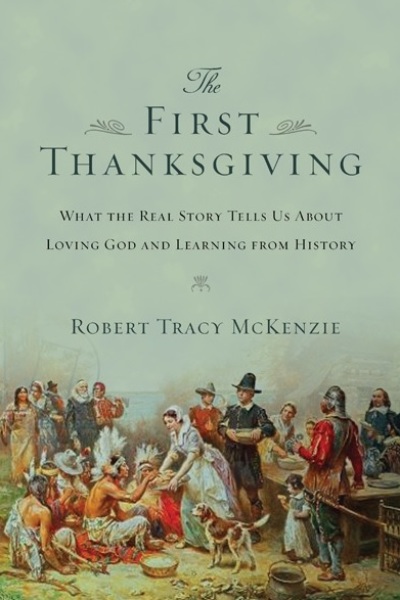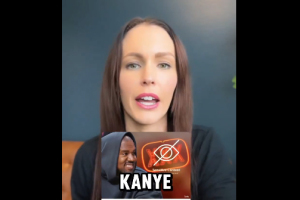Who Were the Pilgrims? 'The Real Story' of Thanksgiving and What It Teaches Us About Loving God

Who were the Pilgrims that we remember every Thanksgiving? What factors led them to leave behind their lives in England and Holland? To what extent do the religious freedom motives that many in our country assign them actually factor into their motives to start the Plymouth colony? Answering these questions is the heart of Wheaton history professor's Tracy McKenzie's latest book, "The First Thanksgiving," where he attempts to set the record straight about our country's beloved, and at times misunderstood, holiday.
Interview has been edited for length and clarity.
Can you take us through some of the ways that the Pilgrims defy or exceed the expectations that we have historically put on them?
TM: We've often imagined the Pilgrims having values that really belong in our day and age more than their own…[For example] their understanding of liberty. Liberty is one of those words that we use so much that we all sort of have a sense of what we mean by it and that's actually a little bit dangerous because words change their meaning over time.
I think our 21st century conception of liberty is probably an assertion of individual autonomy. So liberty is freedom from external restraints of any kind. I have the freedom to say anything I wish, go anywhere, behave in anyway.
The Pilgrims' understanding was very different. They began their understanding of society with groups not individuals. Everyone was understood as being enmeshed in multiple, overlapping group relationships. They're part of families, part of churches, part of civil communities, and within those communities, within those groups, they have mutual obligations. So they think much more in terms of obligation than in terms of right and that is manifested in every dimension of liberty.
What type of over-exaggerated or erroneous meanings have we given to Thanksgiving with regards to religious liberty?
TM: The modern concept of religious liberty in the United States is defined by the freedom for one to be true to one's own conscious. So sometimes you'll hear references to follow the dictates of conscious. That's not a language that the Pilgrims would have used at all. One of the things that they resent in the Church of England is that they believe that the Scriptures teach things about right worship and that the Church is ignoring that and they ultimately feel constrained to separate themselves from the church of England. It's not that they believe the individual conscious is the ultimate authority and it's being infringed upon. They believe that the Scripture clearly teaches something other than what is being practiced.
And so, they want to live somewhere where they can organize their church life and the practice of worship in a way that they believe conforms with Scripture. And that may seem, and it is some sense, similar to the idea of conviction of principle, but it's not the same because they're not exalting the individual conscious as the highest authority.
One of the ways that this plays out is that when the Pilgrims come to North America and establish Plymouth colony, they don't allow religious freedom as 21st century Americans interpret it. They actually had no place in settlement for Quakers, for non-Christian peoples at all. They freely pass laws that require church attendance. [Pilgrim leader] William Bradford talks about in the early years of the settlement, sending individuals through the community Sunday morning, sort of arresting people out of their beds if they had not gotten up for worship. And they see no inconsistency in that and their belief in religious freedom because their religious freedom is the freedom to do what was right, not simply to do what one individually wished.
TM: How did the United States' relationship with Native Americans influence how the holiday was celebrated? What about slavery?
It's really the end of the 19th century before [Thanksgiving is] pretty widely celebrated throughout the country. The question is why? One of the factors is that the context of mid-19th century of Native American-white relations. When Edward Winslow's description of the first Thanksgiving comes to mind, he's describing an event where a large majority of participants were Native Americans. He's also describing an event that's peaceful. In some sense, cordial.
But when this document comes to light, the national policy with regards to Native Americans is removal. It's just three years after the Trail of Tears when the Cherokee Indians were removed to Oklahoma and a quarter of their population had died in route. For three years later for Americans to embrace a story about their origins showing peaceful relations between Indians and Whites would have been very, very difficult.
Another factor that detours a national celebration of Thanksgiving is a political tension that is increasingly dividing the nation along north and south lines. I tried to read every state's Thanksgiving proclamation that I could find from the 17th century to the present. In the ones from the 1840's and 1850's, when the holiday is still celebrated almost exclusively in New England, they very often link the spirit of the Pilgrims with abolition. In particular, when John Brown begins to become a notorious figure because of the slave controversy in Kansas, there are all these kinds of myths that emerge--that John Brown was a direct descendent of the passengers on the Mayflower. That's not true. That John Brown is a modern day Puritan or Pilgrim, that he's doing what the Pilgrims would have done.
TM: Why did you write about Thanksgiving book?
I wanted to talk with Christians about what it means to remember the past faithfully as a believer. I think Thanksgiving is very important but understanding Thanksgiving itself wasn't my first priority. Thanksgiving was an example that I thought was fruitful to hopefully lead us to more broad and general principles to think about the past in a way that is thankful and God-honoring.
TM: Why don't human beings remember the past the way it actually happened?
I think there are two broad factors always in play. One is a product of our being finite and it's really been impossible for us to totally escape our particular perspectives from the particular era and time in which we live….Part of the explanation is our fallen-ness. I think in our fallen-ness we also have tendency to interpret everything around us—not just the past—in a way that in some degree justifies ourselves.




























